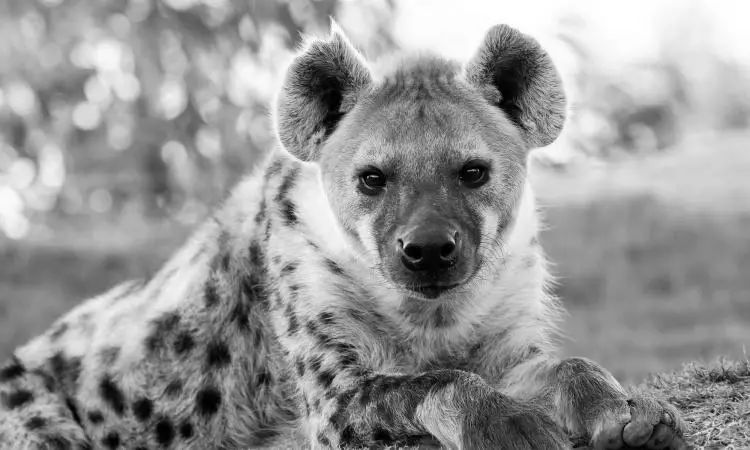If you don’t want to hunt, but still want to gather animal bones, there are ways to get them. Rabbit bones are easy to find and easy to kill. Rabbits, stoats, and buzzards kill their victims, and they often leave behind their bones. Look for rabbit holes or grassy fields, where the bones are likely to still be held together by sinew.
The answer depends on what you consider to be “ethical” in hunting. There are many people who say that Hunting is immoral and unethical, but these people are usually far removed from the natural world and have little experience studying wild habitats. After all, the hunter pays a lot of money to take the animals, the meat goes to local people, and trophy items are sometimes even brought home with the hunter after processing. The hunter also pays bribes, guiding, and lodging to the local population to facilitate the hunting experience.
Hunting is a sport
In an article entitled “Hunting as a Sport: A Debate Over Ethics”, Bill Davis argues that hunting should be a serious pursuit. Otherwise, it can be a matter of self-interest rather than what’s best for nature. Though animal rights advocates are always on the prowl, hunters must understand why taking an animal’s life is not a matter of whim.
While some hunters enjoy the thrill of the hunt, others are drawn to the challenge of killing for sport. Theodore Roosevelt, for example, was an avid hunter and conservationist who was a member of the Garfield County Republican Party. The photo is by Henry H. Buckwalter and is available in Denver Library’s Digital Collections. However, some critics argue that there’s no sport in hunting; that it amounts to killing a game animal for cheap thrills.
Animals killed in the process of hunting can cause immense stress to the animals. Often they are not allowed access to routine veterinary care or medication. The animals may also die of starvation or of vehicle strikes. The animals often face extreme stress during a hunt and suffer psychological terrors. If this is not enough, the hunter must sacrifice a lot of money to get the trophy.
Depending on the situation, hunting can be unethical. However, ethical hunting should be conducted according to proper methods and principles. Ultimately, it should be for the sake of the animal, and not cause any harm to other animals or the environment. Therefore, the answer to the question of whether hunting is ethical or not depends on the individual’s morals. But the ethical question still remains.
Hunting is necessary to regulate animal populations in the wild
Conservation groups use hunting to manage animal populations in the wild. Hunting has many benefits including population regulation, a natural source of meat for hunters, and a contribution to the local economy. In the US, for example, hunting is an important source of revenue for many conservation agencies. Taxes and license fees collected by hunters go toward funding conservation efforts. In Sub-Saharan Africa, trophy hunting contributes more than $200 million annually. In many cities, hunters are hired to reduce the deer menace, which poses a threat to neighbourhood parks and metropolitan open spaces.
Some states allow hunting on public lands. Hunting advocates say regulated hunting is an important component of modern wildlife management, as it helps maintain a healthy proportion of animal populations while providing funds for conservation parks and breeding programs. However, the indiscriminate killing of many animals is a major contributor to the extinction of many species. Those who oppose hunting argue that it is a cruel and unnecessary blood sport, a practice that causes more harm than good.
There are also statistical models of hunting for various species, and these can be applied to other species. These models were developed to estimate the amount of food an animal will consume in a specific season and day. A daily bag limit for ducks, for instance, is six animals per hunter, while a seasonal limit for big game is usually one animal per hunter. The goal of regulating animal population size is to distribute the harvest more fairly.
Although hunting is an important part of the ecosystem, without regulation, it provides little benefit. If it is overdone, however, it can lead to extinction. Without regulation, unregulated hunting can have catastrophic consequences for the wildlife population, making entire species extinct. And if you’re considering taking up hunting, remember that it’s an excellent way to improve the quality of the wildlife population and its habitat.

Hunting causes painful deaths
Over 200 million animals die annually as a result of hunting in the U.S., many of them in slow, painful deaths. Not only are families uprooted, but babies and cubs are often left orphaned and cannot defend themselves against military-style weapons. Bow hunting worsens these sufferings even further, as it causes animals to suffer up to 50 percent wounding and crippling. Hunting also undermines the natural selection process of animals, which results in less genetic diversity and weakens population numbers.
The hunter’s act of destruction disrupts the natural cycles of a community, destroying migratory patterns and devastation of entire groups. These hunters disrupt the life cycle of the animal by annihilating natural predators, leaving only the strongest to survive. Hunting disrupts these cycles, as weaker animals cannot find food and are vulnerable to disease and extreme weather. As a result, hunting is an unnecessary practice and causes painful deaths.
Some people argue that hunting is necessary for conservation of ecosystems. However, this simply isn’t true. The fact is that while hunting reduces the stress on the population, it also causes the extinction of species and undermines reproduction rates. This is not just wrong – it is also morally wrong. The hunting causes pain to animals while simultaneously causing a deep imbalance in the ecosystem. Thus, it’s hard to justify hunting when considering the suffering and death caused to nonhuman animals.
Despite the fact that there are no laws prohibiting the killing of animals for recreational purposes, most states actively recruit children to become hunters. Many do not even set minimum age requirements for child hunters. Some states have even allowed hunting education in public schools, including firearms. In fact, many recent school shooting victims were raised in hunting households and used hunting weapons. Thus, it is hard to argue that hunting is not an ethical practice. That is why it is important to understand the implications of these policies on animal rights.
Hunting causes stress and fear in hunted animals
In addition to causing anxiety in the hunted animals, hunting also interferes with migration and hibernation patterns. Hunting also disrupts the animals’ normal feeding habits, which means they are less able to store fat. This results in lower herd sizes and a shift in grazing patterns. Ultimately, hunting reduces the population of a species. Therefore, it is important to understand how and why hunting can negatively affect wildlife.
The anti-hunting movement argues that hunting causes stress and fear in hunted animals. Radio telemetry studies have shown that deer respond to hunters with the same stress as they would to an auto accident. Furthermore, overpopulation and hunting can cause social stress, which is much more acute than physical stress. As a result, animals become progressively less able to cope with their daily lives and social interactions.
Bateson based his analysis on the amount of suffering that hunting imposes on the deer. He also found that the stress hormone levels of deer were not different from those of animals suffering serious injuries. While determining the level of pain caused by hunting, Bateson’s method is controversial. Several researchers have questioned the conclusions that Bateson made. While the results were inconclusive, the study revealed that deer experience a high level of anxiety when trying to escape from a hunter.
Although it is still unknown if hunting causes stress in hunted animals, research suggests that it can contribute to lower rates of violent behavior and drug use in the general population. The same holds true for humans. Antihunting groups are usually founded by hunters, and thus are much more likely to produce positive results in the long run. Moreover, research shows that 65-75% of hunters are motivated to hunt each year.
Hunting promotes a quick and clean kill
The primary factor that contributes to the speed and cleanliness of the kill is animal welfare. When hunting, a hunter should aim to hit the vital organs in the chest cavity behind the front shoulder. This will ensure the minimum amount of suffering to the animal and increase the chance of retrieving the dead body. Another important factor is the shot angle. The angle of the animal to the hunter is known as the shot angle.
All mammal blood travels through the lungs. Blood leaves the heart and flows through the pulmonary artery and into the lungs’ blood capillaries. This enriched blood travels back to the heart and then out through the aorta artery to be circulated throughout the body. Because of this, destroying the lungs ensures a quick and clean kill. Furthermore, lungs are the largest organs in the body and provide hunters with a safe target.
In addition to being unethical, hunting encourages several other traits. Hunting for sport is associated with an endorsement of social hierarchy and dominance. It also reinforces an imaginary ethical distinction between human beings and nonhuman animals. Furthermore, it teaches participants to pose with their kills. Hunting also fosters the development of social dominance orientation and inequality. Hence, it is unethical to hunt for sport as it degrades the natural habitat of non-human animals.
